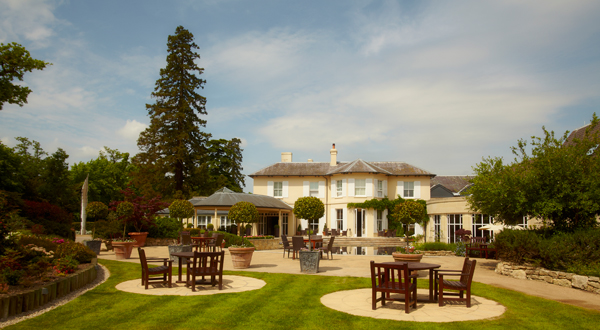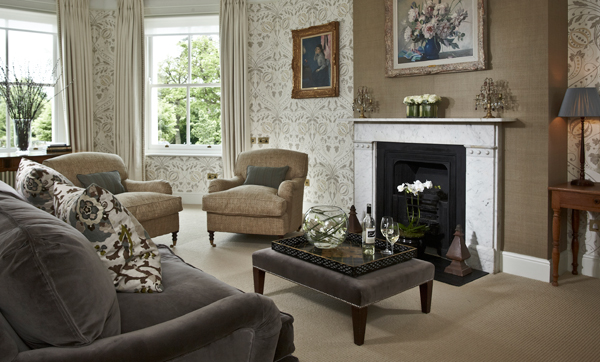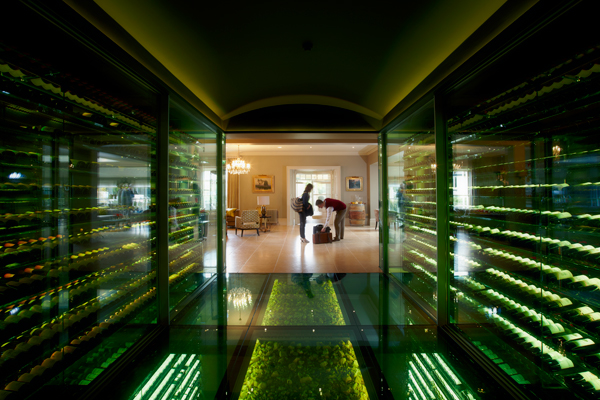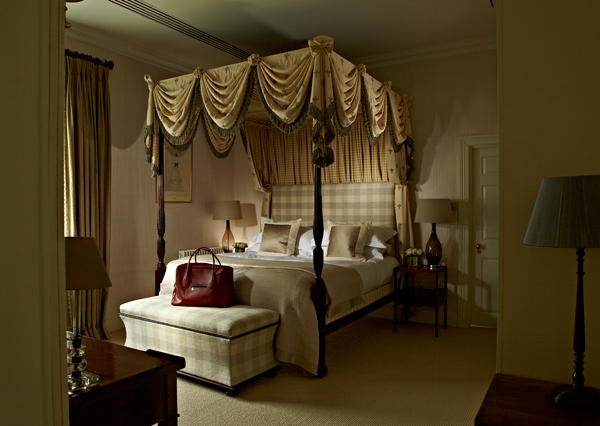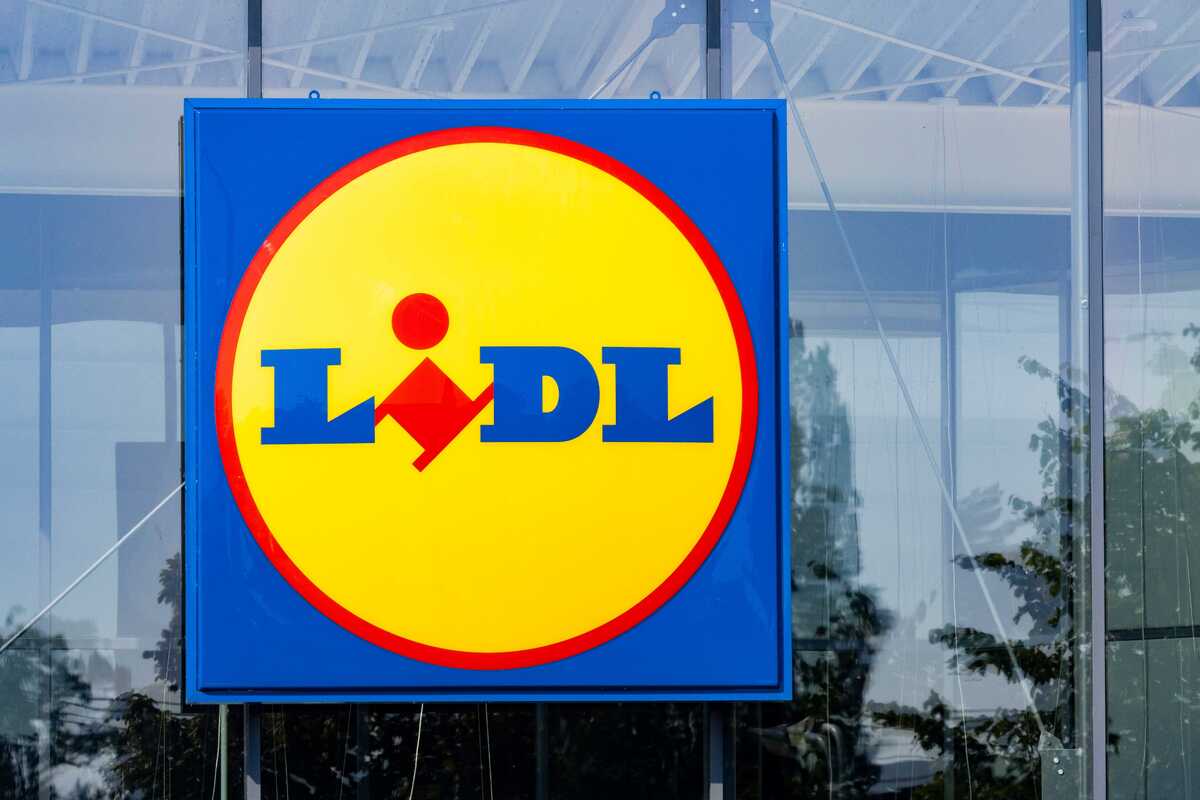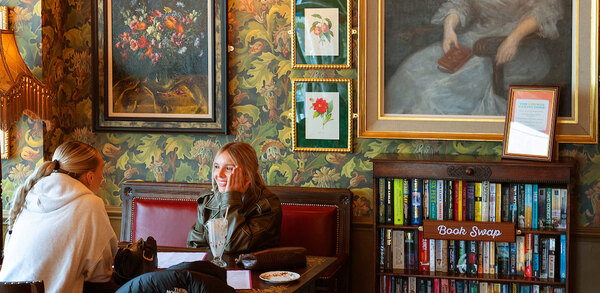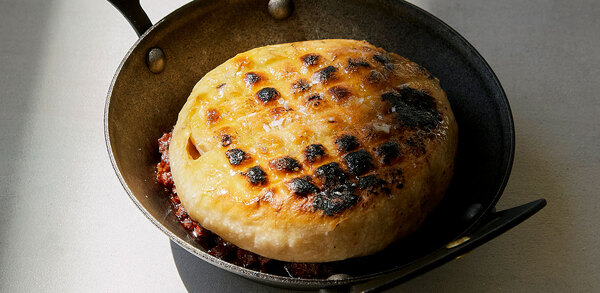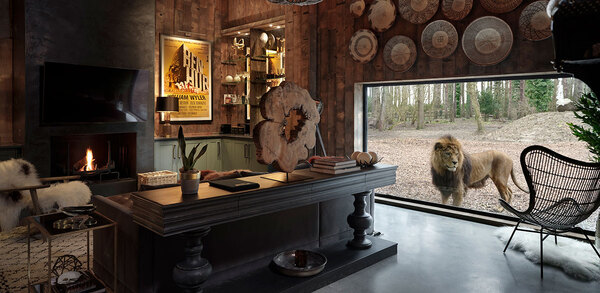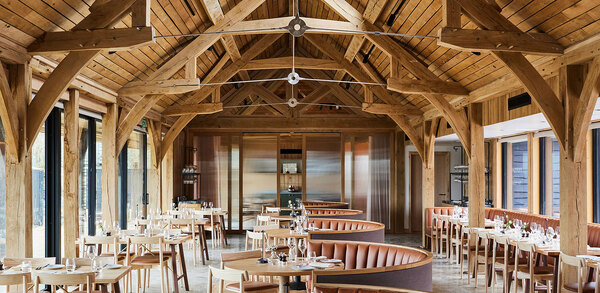The Caterer interview: Andrew McKenzie
Andrew McKenzie has been managing director of the Vineyard Group for an admirable 20 years. James Stagg finds out how he transformed a 33-bedroom hotel into a prestigious wine destination
You've been managing director since the hotel opened 20 years ago. How did you land the job in the first place?
Well, strictly speaking, I didn't. I arrived just as it opened; in fact, I was here for the opening party. It opened 20 years ago last month, although the restaurant had been open for a while on soft launch. This was originally bought when it was Foley Lodge by our chairman Sir Peter Michael; he had just sold Classic FM and wanted to turn the hotel into something a bit more special, a bit more of a gastro-destination. Previously it had been an 80-bedroom, four-star hotel.
We opened with 33 bedrooms and the restaurant, which everything was built around. We spent more than £1m on the kitchen and made it the heart of the operation.
My predecessor Ian Leslie, who'd done the development with Sir Peter, knew I was looking to move and asked me to pop in and see what they'd done. He offered me the job as general manager, with a view to taking over at some point. Ian preferred building it to running it, so I quickly became managing director.
You landed your first GM position at the age of 26 with Thistle hotels. How would you feel about employing a 26-year-old as GM now?
For the right property, potentially. Although I knew diddly squat, really! But I started when I was 13, so I had a lot of experience by then. That said, I've had good success recruiting young managers, but they've got the umbrella of my team to support them. The enthusiasm of youth is very positive; there's a lot to be said about giving people a break.
You came from a solid four-star background, so how did you convince Sir Peter Michael you could head up this project?
I had a couple of five-star properties in my background: I was F&B manager at the Royal Bath in Bournemouth from age 22 and then moved to the George in Edinburgh. I'd always had a massive interest in gastronomy, so I suppose
I was punching above my weight in the four-star market. Even then, in the four-star world, you had restaurants with aspirations. Now four-star F&B managers need to understand margins, procurement and staffing; back then you had to write the wine list and get involved with the menu, as well as carving in the room and doing guéridon service. It's much more polarised now and the star ratings are far more rigid.
When you like what you do, you never work a day in your life. I work for good bosses, who are very interested but not involved. Iâd hate to work for someone who wasnât interested, and Iâd hate it if someone wanted to take the corners and head the goals too. We make the critical decisions and our philosophy is that itâs easier to ask for forgiveness than permission.
What has kept you in the business so long?
Itâs the trust and freedom. Freedom to feel that while itâs not my business, I can treat it like it is. We bought a hotel in Bedford and Peter hadnât even seen it. We presented the figures and the first time he saw it was at a board meeting there.
Was the USP always Californian wines, or was that something you developed over time?
The family bought the winery back in 1982 but the idea was to make the Vineyard the showcase for Californian wine and great food. We started off with the idea of doing a Californian food offering too, but we soon realised that needed to be a little tempered down. When we opened we planted vines outside the hotel, until someone mentioned that for seven months of the year weâd just have a muddy field with poles in it. So we grassed it, before building an extension to take it from 33 to 49 rooms.
How did you change things in those early days?
When we opened in 1998, it was a slow burn and I think our positioning was arrogant and old-fashioned. Many of the staff had come from the Savoy, including the chef, but it was square pegs in round holes. We had top hats and tails, voila cloches â" even the glassware was wrong.
We had a stinking review early on from Craig Brown, who was Michael Winnerâs predecessor â" itâs on the wall in the hotel with the good, the bad and the ugly. The boss called me over for one of his Sunday meetings and he was angry, but I told him the reviewer had a point. So we made some rapid changes overnight and introduced a more relaxed feel with cooking that was more of the moment. Thatâs when I brought in Billy Reid from LâEscargot and he got us our first star.
In October 1998 our turnover was £60,000 and payroll was £120,000. By 2002, turnover was £600,000 and payroll the same. It needed to change to survive.
Weâre not in the Cotswolds, New Forest or on the coast, but weâre at a good location. West Berkshire isnât a destination, which means leisure business in the week has always been a struggle. Weâve relied on corporate retreats for midweek or people doing an off-site event.
At one point we had one of the big four accounting firms with people from various international banks taking on a serious wine âtaste-offâ. People were spending huge amounts of money. Lehman Brothers was one of our biggest clients. Then in 2008, that tap turned off overnight. It was frightening.
We made some short-term changes but the biggest thing was a culture change in the staff. We had to make some difficult decisions and rethink what we did. Adjusting the cost base isnât easy and there are certain untouchables, but you try to make changes that nobody notices. You canât risk death by 1,000 cuts.
Is that when you began to look at management contracts to broaden
the scope of the business?
We did see an opportunity with management contracts as we had built a strong management team. We started off with a hotel as a favour for someone and realised we could do it. Then an opportunity for a fund that owned seven hotels came up. That worked well, and we ran them for several years.
We then took on the runt of the Von Essen stable â" that was fun! Then individual ones like the Kings Head in Cirencester, although we lost that one. I was sorry about that, but Iâm glad now as the relationship was quite toxic with an ungrateful owner. We learned our lesson there.
Youâve operated 15 such contracts, so you must have had to deal with a number of different owners with differing priorities and ways of working. That must prove quite a challenge
Itâs about managing expectations. Weâve lost management contracts as weâve given an honest idea of what we can achieve, and theyâve gone for someone whoâs gone in with a different one.
Iâm speaking to someone about a management contract now, but Iâm plain and say, âif weâre in a beauty parade, Iâll tell you what I thinkâ. We can do that as we have our own business, so we can be a bit more selective â" and the dark days of 2008 are behind us, but for how long, I ask myselfâ¦
It takes up a lot of time but itâs hugely important. Iâve probably done the equivalent of five MBAs sitting in meetings listening to smarter people than me talking and picking up things. Iâm on a steering committee of Relais & Châteaux and [Northcote managing director] Craig Bancroft said he was going to introduce something at his hotel â" and I told him I was going to do this â" but I came back and implemented it here.
Getting out there and staying connected is critical. I tell my team to read a quality newspaper every day, all the restaurant reviews they can and The Caterer every week to stay abreast of everything and know where the trends are going. Itâs so much easier to stay connected now.
Food has always been a big focus here and Iâm sure you were delighted when the restaurant under John Campbell was awarded two Michelin stars back in 2007. Is it something you strive for now, or in todayâs economic climate it is more important to be accessible?
Strangely, it doesnât make a difference, and weâve had no stars, one star and two stars. Trade has hardly changed at all. When we had our first star, or even our second, it didnât turn the tap on, and when we lost them it didnât turn it off. Where it is harder is recruiting, thatâs for sure. Every chef in the world says theyâre cooking for the guests, not the critics, but everyone whoâs serious wants a star. And weâd like one and I think we deserve one.
I have to ask about staffing, as itâs always a challenge, particularly outside the main metropolitan centres. How can you make a role at the Vineyard as competitive as possible?
Being a member of Relais & Châteaux helps as we get staff worldwide coming to stay, and it marks you as serious about hotelkeeping and gastronomy.
Iâve got more of a problem with West Berkshire Council than with Brussels. We used to have 100 live-in staff. Everyone was happy and it helped as you could get experienced people to come and put up stagiers too. But now the live-in offset is pathetic and a disincentive to staff. We used to pay 50%-60% of staff rent, but then the rules of multiple occupancy came in and this busybody from the council said weâd have to spend tens of thousands per property to turn the oven into a six-burner stove in case they all wanted to cook at the same time and to put more showers and toilets in, among loads of other changes. And these were decent places. I wanted everyone to live better than where my kids lived at university.
We were being asked to spend this as a tenant, so we had to get rid of all these houses. We are now down to 35 live-in staff and all the staff that would have come here are spending twice as much somewhere else. This is the law of unintended consequences.
I can see myself here. Maybe not in 20 years, but a good 15. Iâd like to be here doing this when Iâm over 70. Currently weâre about to build a wedding barn at Donnington Valley and weâve got some exciting plans elsewhere â" itâs not possible to explain how we might expand the business quite yet, but when it happens it will change the dynamic of the Vineyard.
The Vineyard Group
Group turnover £15m
The Vineyard
Stockcross, Newbury RG20 8JU
A five-star hotel and spa, renowned for its impeccable service, three-AA-rosette restaurant and award-winning 30,000 bottle wine cellar
Bedrooms 49
Occupancy 60%
Average room rate £200
www.the-vineyard.co.uk
Donnington Valley hotel and spa
Old Oxford Road, Donnington RG14 3AG
A four-star hotel, spa and golf club with a two-AA-rosette restaurant
Bedrooms 111
Occupancy 85.5%
Average room rate £102.50
www.donningtonvalley.co.uk
The Barns hotel
Cardington Road, Bedford MK44 3SA
A four-star hotel situated on the River Great Ouse
Bedrooms 49
Occupancy 87.5%
Average room rate £79
www.barnshotelbedford.co.uk
Brownsover Hall Hotel (managed)
Old Brownsover, Rugby CV21 1HU
A Grade II-listed Victorian Gothic mansion in seven acres of woodland and gardens
Bedrooms 47
Occupancy 79%
Average room rate £71
www.brownsoverhall.co.uk



